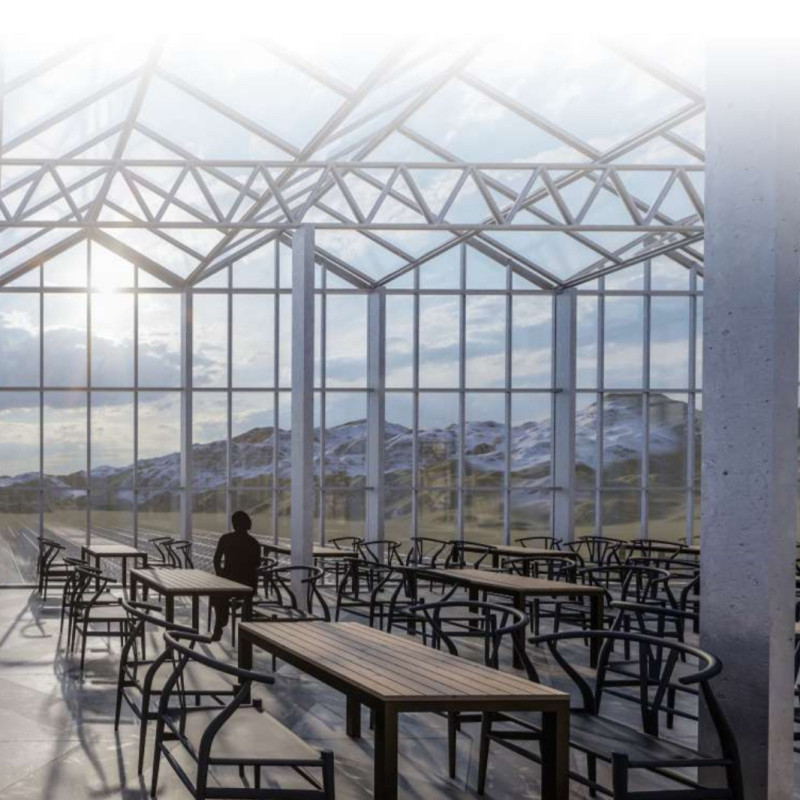5 key facts about this project
The design centers on a multifunctional facility in Iceland, blending naturally with the surrounding landscape. It emphasizes user experience while respecting the site’s unique geological features. The layout accommodates greenhouses and service areas that support both functionality and interaction with nature.
Greenhouse Mass Design
At the heart of the design is a greenhouse mass covering around 5000 square meters. This area is divided into three sections, each measuring 39 meters on each side. This division allows the greenhouses to adapt to the varying slopes of the site. By aligning with the terrain, the design creates a visual continuity between the buildings and the natural environment.
User Accessibility
Understanding user movement is a key part of the design. Different parking areas are provided for guests and employees. Guest parking is conveniently located near the greenhouses, while employee parking is situated behind the main building. A bus station is positioned close to the entrance to encourage public transport use. Additionally, a helicopter landing pad is included to cater to various visitor needs.
Mechanical Systems and Sustainability
Advanced mechanical systems are incorporated to support sustainable practices. A geothermal heating and cooling system will provide necessary temperatures for plant growth through a hot loop for heating and a controlled water loop for hydronic systems. Besides that, an automated irrigation system uses rainwater harvesting and UV sterilization, ensuring a suitable environment for plant health.
Material Selection and Aesthetic
Material choices are integral to the project. Steel frameworks support the greenhouse structures, while reinforced concrete is used for functional elements such as stairs and elevator walls. Glass facades enhance transparency and visual connection to the outside landscape. Traditional wood cladding is applied to provide warmth and texture, connecting the design to its regional context.
The restaurant, positioned at the highest point of the facility, offers expansive views of the scenic surroundings. This design element invites visitors to engage with both the landscape and the innovative greenhouse spaces while enjoying their dining experience.





















































